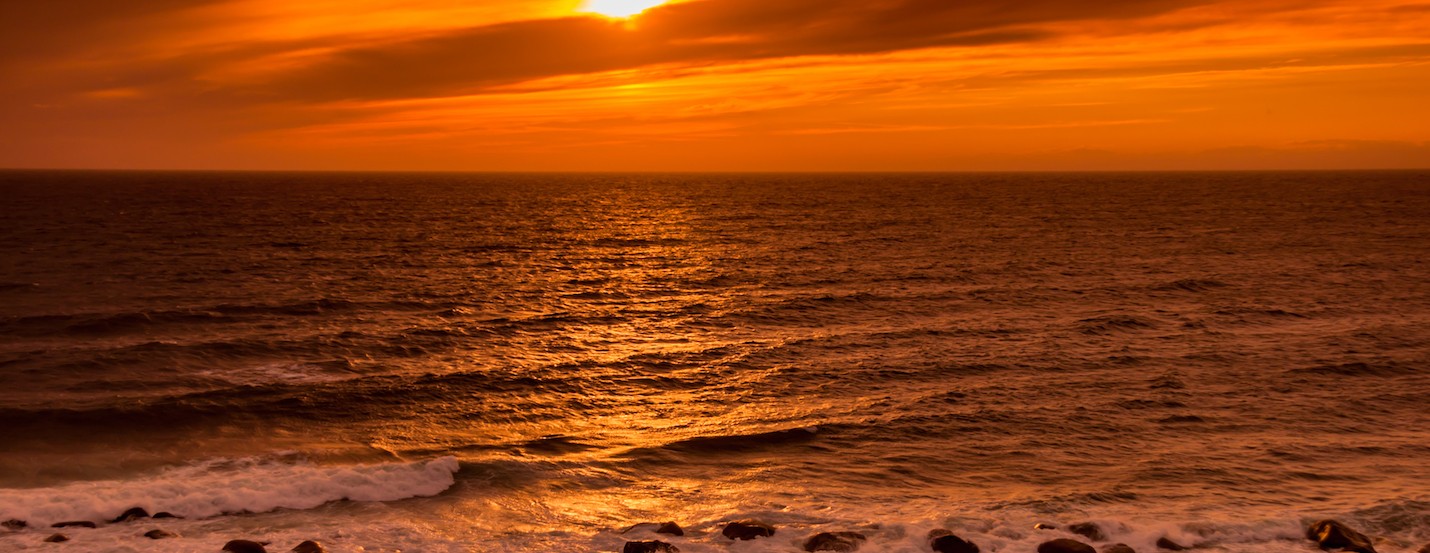
11.19.18
With offshore drilling it's not a matter of if spills will occur, but when
By Surfrider FoundationIn one of the latest devastations to the ocean resulting from offshore drilling, more than 1,572 barrels of oil have spilled off Newfoundland, Canada since November 16th in an area of the North Atlantic where wave action remains too dense for cleanup still, three days after the spill.
The perpetrator of the spill, Husky Energy, says the incident occurred Friday when a production, storage and offloading vessel “experienced a loss of pressure” in an oil flowline.
Oil spills are an unavoidable part of offshore oil drilling. Each year about 880,000 gallons of oil are sent to the ocean from North American offshore oil drilling platforms, and that’s just during normal operations.
History demonstrates that inclement weather and natural disasters can and often do prompt spills. When Hurricane Katrina whipped through the Gulf of Mexico, that storm destroyed over 100 platforms and caused the release of 8 million gallons of oil, the largest spill in the U.S. since the Exxon Valdez. In 2004, Hurricane Ivan also damaged platforms in the Gulf of Mexico, triggering an oil spill that is still spewing oil today; the “Taylor spill” has been leaking 300 to 700 barrels of oil every day off the coast of Louisiana for the past 14 years, and there is no fix in sight.
From 1995 to 2010, the U.S. Mineral Management Service recorded almost 500 spills in the Gulf of Mexico and the Pacific Ocean (including spills of toxic chemicals related to drilling). Since 1969, there have been at least 44 large oil spills of over 10,000 barrels of oil each in our nation’s marine waterways. This means that we can expect a spill of over 10,000 barrels of oil every 13 months, in the U.S. alone.
Fortunately, there are opportunities for concerned citizens to make their voice heard on the issue of offshore drilling. Here in the U.S., the Department of Interior is expected to release the proposed program for the 2019-2024 national outer continental shelf oil and gas leasing program in the next 1-6 weeks, which will launch a 90-day public comment period. The updated proposal will follow the first draft plan released on January 4, 2018, which prompted an uprising of widespread opposition along every stretch of American coast.
Volunteers from across the US will be joining Surfrider in Washigton DC on Febraury 28 and March 1 to meet with congressional representatives on top ocean issues, including offshore drilling. While funding is not provided by Surfrider, all are welcome and encouraged to register and join! For more info: go.surfrider.org/oceanhillday.
You can also help put an end to this risky practice and instead help our nation advance toward a clean energy future by joining the Surfrider Foundation and our allies in growing coalitions across the U.S. to stop new offshore drilling:
- California: Jennifer Savage, California Policy Manager
- Florida: Holly Parker, Florida Regional Manager
- Hawaii: Stewart Coleman, Hawaii Regional Manager
- Mid-Atlantic States (NY to VA): Matt Gove, Mid-Atlantic Policy Manager
- National Campaign Lead: Pete Stauffer, Environmental Director
- National Ocean Recreation Lobby Day Organizer: Katie Day, Staff Scientist
- New England States (ME to CT): Melissa Gates, Northeast Regional Manager (or fill out this form to join your NE state's coalition listserv)
- Oregon: Charlie Plybon, Oregon Policy Manager
- Southeast States and Texas: Sarah Damron, Chapter Manager
- Washington State: Gus Gates, Washington State Policy Manager
- Youth engagement: Ryan Cruse, Youth Network Manager
Thank you for doing your part!
